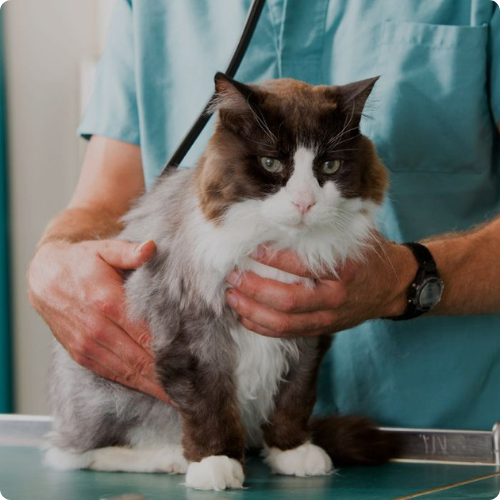
Pain Management for Cats at A Cat Hospital in Henderson, NV
Caring for a cat in pain can be challenging, especially since cats are known for hiding their discomfort. At A Cat Hospital in Henderson, NV, we specialize in pain management for cats, offering compassionate and effective treatments to help your feline companion live a comfortable life.
Call us today at 📞 702-454-4400

Understanding Feline Pain
Cats and dogs are similar in many ways, but they are different in a few fundamental ways that might not be readily apparent. Most dogs will show that they are in pain, either to get help or simply because they don’t tend to hide it from members of their family. Cats, on the other hand, will almost always try to hide their pain. This is a strong instinct in cats as their solitary predatory nature makes showing weakness in the wild a deadly mistake. In nature, solitary animals that look vulnerable tend to get targeted by other predators. That means your cat will almost always do their best to hide an injury, even from you.
So, the question is, how do we help our cats to cope with pain?
Many times, injuries or other sources of pain will be obvious. The animal will favor a broken leg, or you’ll see a wound. If the pain a cat is experiencing comes from the development of an internal condition or from an injury that is not readily apparent, it can be difficult to notice.
The key is to know your cat well. Know how they move, what their habits are, and how they tend to behave in certain situations. For example, how do they sit while eating? What is a favorite relaxation position? Where are their favorite places to sleep? What times of day do they tend to nap, and for how long? Other signs to watch for are changes in eating habits. If your cat is eating much more or less than usual, it can be a sign of hidden trouble. Of course, there is no guarantee that we, as cat owners, will spot the signs.
So, we should also watch for specific behaviors, such as:
- Being resistant to being held
- Withdrawing from socialization, hiding
- Becoming unusually aggressive when being held or petted
- The formation of mats in the hair, unusual or reduced self-grooming activity
- Limping or stiffness
- Unusually slow movement
- Unusual reactions to being touched
- Personality changes
If your cat exhibits any of these behaviors, it may be time to consult with a veterinarian specializing in pain management for cats in Henderson, NV. Contact us today to ensure your cat receives the care they need.
Our Approach to Pain Management
At A Cat Hospital, we prioritize your cat’s comfort and well-being. Our approach to pain management is comprehensive, starting with a thorough examination to identify the underlying cause of the pain. We then develop a personalized treatment plan customized to your cat’s specific needs.
Our pain management services include:
Medical Therapy
We offer a range of medications to help alleviate pain and inflammation, carefully selecting the best options based on your cat’s condition and overall health.
Nutritional Support
Proper nutrition plays a key role in managing pain, particularly for cats with chronic conditions like arthritis. We provide guidance on dietary adjustments that can support your cat’s recovery.
Physical Therapy
Gentle exercises and movement therapies can help improve mobility and reduce pain. Our team will guide you on how to incorporate these activities into your cat’s routine.
Environmental Modifications
Making simple changes at home, such as providing soft bedding or easy access to favorite resting spots, can significantly improve your cat’s comfort.
If you notice any signs of pain in your cat or have concerns about their well-being, don’t hesitate to contact us. Early intervention is key to managing pain effectively and improving your cat’s quality of life. Contact us today to schedule an appointment and learn more about our pain management services for cats.


